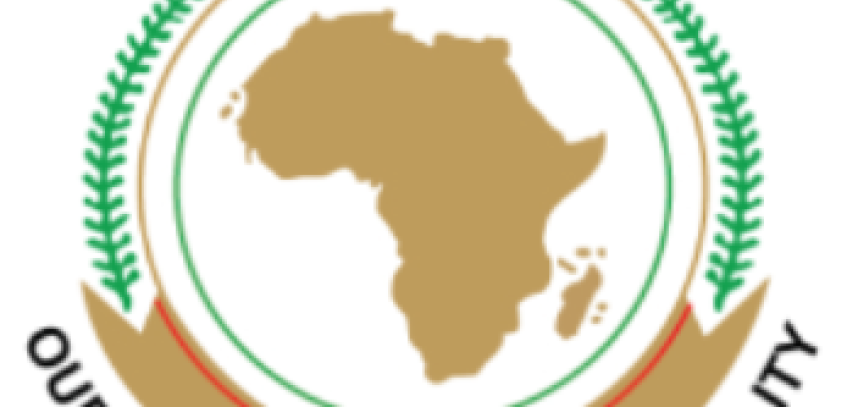- The African Commission on Human and Peoples’ Rights (the African Commission) through its Working Group on Indigenous Populations/Communities in Africa (the Working Group) in collaboration with the Mbororo Social and Cultural Development Association (MBOSCUDA) organized a National Dialogue on the Rights of Indigenous Peoples’ and Extractive Industries from 7 to 8 September 2017 in Yaoundé, Cameroon.
- The National Dialogue was attended by 43 participants representing:
Ø The Working Group, represented by its Chairperson Commissioner Soyata Maiga and Ms Hawe Bouba and Dr Kanyinke Sena assisted by Mr. Samuel Tilahun.
Ø the Government of Cameroon including representatives from the Ministry of External Relations, Ministry of Justice, Ministry of Social Affairs, Ministry of Mines, Ministry of Territorial Administration and Decentralization, Ministry of Livestock, Fisheries and Animal Industries, Ministry of Agriculture and Rural Development, and Ministry of Employment and Vocational Training;
Ø National Commission on Human Rights and Freedoms of Cameroon;
Ø Indigenous organizations and civil society organizations based in Cameroon;
Ø Transparency International, International Union for the Conservation of Nature, and International Work Group for Indigenous Affairs
Ø Extractive industries; and
Ø The media
- The opening ceremony was attended by high-ranking officials. Speeches were delivered by the National Chairperson of MBOSCUDA, Mr. Jaji Manu Gidado, the Vice-Chairperson of the African Commission and Chairperson of the Working Group, Commissioner Soyata Maiga, and the Technical Advisor to the Ministry of External Relations, Mr Bekono Nkoa Georges, who declared the National Dialogue open.
- The National Dialogue was aimed at launching, popularizing and widely disseminating the Study on Extractive Industries, Land Rights and Indigenous Populations/Communities Rights of the Working Group; engaging with relevant stakeholders particularly state and non-state entities on the findings of the Study; and finding a common ground and deliberate on ways and means of creating mechanisms for the implementation of the recommendations made by the Study;
- Several themes were extensively discussed, including:
- The main findings and conclusions of the Study;
- The perspectives of the Government, extractive industries and indigenous peoples’ on the findings of the report relating to the situation in Cameroon;
- The principle of free, prior and informed consent, and international and regional mechanisms, safeguards and voluntary Guidelines; and
- Recommendations of the Study;
- Presentations were followed by constructive dialogues on the findings, conclusions and recommendations of the Study.
- Working groups were formed to make recommendations on ways and mechanisms for the implementation of the recommendations of the Study.
- The following recommendations were made at the conclusion of the National Dialogue:
To the Government of Cameroon
Ø The Ministry of Justice to propose a bill on the protection of indigenous peoples rights to the Parliament.
Ø The Ministry of Justice and the judiciary to facilitate access to justice to indigenous communities at the local level through the establishment of courts and providing support and promoting alternative dispute resolution processes;
To Civil Society Organizations
Ø Lobby the Ministry of Labour and Social Security to expedite the process of ratification of ILO Convention 169. MBOSCUDA to spearhead the process.
Ø Advocate for the institutionalization of participatory mapping of indigenous lands, customs and traditional practices;
Ø Revive and strengthen indigenous peoples’ organizations platforms;
Ø Train indigenous peoples organizations and civil society organizations on human rights, governance and advocacy;
Ø To popularize and widely disseminate international, regional and national laws and standards relevant to the rights of indigenous peoples;
Ø Lobby for the recognition of indigenous rights to their land and resources in national laws, policies and processes, including implementation of identified recommendations within the Study. Periodic reports should be made on progress and challenges.
Ø Raise and provide funds to indigenous organizations to build their capacity and to be able to speak for themselves.
To Business Enterprises
Ø Comply with the principle of Free, Prior and Informed Consent in the development and implementation of all projects related to extractive industries. Business enterprises should also recognise the rights of indigenous peoples to control and own their lands and territories regardless of the laws and policies of the Government ;
To Indigenous Communities
Ø Create a national multi-stakeholder working group with clear terms of reference to ensure follow up and implementation of the study’s recommendations. The working group should be comprised of representatives of all national indigenous peoples’ network, civil society organizations, the National Commission for Human Rights and Freedoms, government, and local authorities.
Done in Yaoundé, Cameroon, 8 September 2017?








